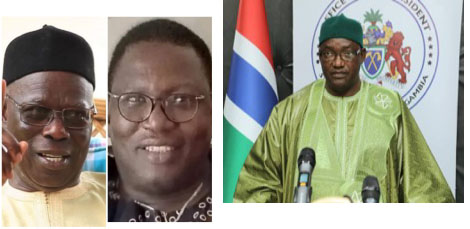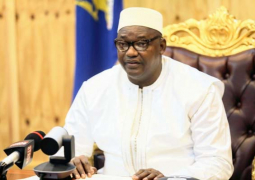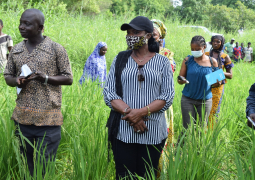
“The GFA in totality is hereby rejecting a third mandate for another re-election of President Adama Barrow,” Sadibu Jadama said on behalf of the Party.
He points out that if The Gambia is to embrace its agenda on conflict prevention and democratic consolidation seriously, among other things, an earlier and more robust engagement with proposed changes to presidential term limits should be called for, as they often trigger violence and other constitutional crises across Africa.
“The Gambian citizens have made several suggestions on how The Gambia can adopt a more effective role in evaluating and responding to often intricate complex constitutional manipulation, including changes to term limits,” Mr Jadama, the Party’s Bakau Chairperson, said.
In terms of experience and expertise, the GFA is proudly in solidarity with the Gambian people that “Demba is Ok” to save the Gambia and rebuild the country under a better administration.
According to Jadama, The Gambia has become a key landscape for presidential tenure reform over the past 8 years, with an attempted or successful change to presidential term limits to introduce or tighten them, or to remove or relax them as an ECOWAS member state.
“Until now much of the literature has concentrated on the virtues of presidential term limits and argues for their existence or even for an obligation to impose on them,” he said, adding: “The position by the GFA political party has been following to a large extent by observation.”
He recalled that in the past, all opposition in The Gambia debated but did not reach agreement on a proposal to adopt the country’s obligation to adopt term limits.
“Nonetheless, there has been considerable resistance to attempts to impose or tighten term limits. Moreover, even when term limit changes, it poses threats to peace,” he stated. “There is an apparent institutional reluctance to interfere too vigorously. Like other countries, the EOWAS is sensitive to the need of broad support of its members and to arguments that it should not interfere in domestic matters.”
“Against this background,” he went on, “I suggest that the debate on term limits should be situated in an approach to constitutionalism and the rule of law, including its agreed role in promoting and protecting these norms.
“Specifically, it argues that The Gambia already has a framework in place that commits its members to constitutionalism and the rule of law, and that this provides the basis for developing a more robust monitoring mechanism for scrutinizing and assessing the way in which presidential term limits should be.”
The plethora of recent term limit changes in The Gambia provides the empirical material to trace the record in dealing with term limits, he said, while explaining how term limits have been changed between 2016 and 2024 and the different processes for changing them in The Gambian constitutions.
“I conclude by arguing that three sets of factors - instability, illegality and illegitimacy - often signal constitutional manipulation. I think then I consider the role of The Gambia in relation to term limits, particularly when constitutional manipulation may be present,” he stated.
“Here it sets out the elements of the president as normative and institutional framework that provide the basis for its involvement in domestic constitutional processes, and sketches the key legal and institutional challenges that inhibit its ability to implement its goal of democratic principles.”
Read Other Articles In Headlines

Gambian asylum seekers face deportation to Rwanda as UK approves plan
Apr 24, 2024, 11:28 AM




